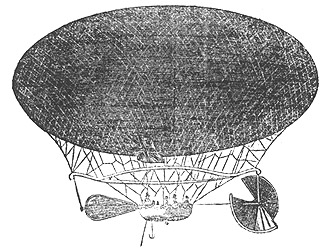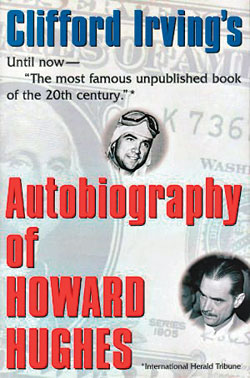I was fortunate enough to be invited a few months ago to give a keynote address at a writers' conference, and when the time came I found that my audience included not just writers but a number of readers and publishers and literary agents. And as I stood there at the podium, I realized that I felt a little like the guy in that Hanks/DiCaprio movie Catch Me If You Can. I was an impostor.
Seriously, of all the folks in the room that day, and of all my colleagues at SleuthSayers, and of all the (two or three) people who might be reading this column right now, I am probably the least likely person to have become a writer. I was not an English major in college; I do not have an MFA degree; I've never had any formal training in writing; I am not, as so many authors are, a former journalist; I did not, as so many authors did, begin writing at an early age. I didn't even like English in school, or the lit classes. I liked math.
My course of study in college was, of all things, engineering. Afterward I was hired by IBM and then spent four years on a leave-of-absence to the Air Force, during which time the only writing I did was filling out performance evaluations (which, I admit, got a little creative at times) for the airmen and sergeants and junior officers in my group. When I completed my stint in the military I returned to IBM and spent my entire career there, as both a systems engineer and a marketing rep. I specialized in finance, and did actually write a technical manual once, about a remote check-processing system that I helped develop, but those words were--believe me--not a lot of fun to put on paper. I suspect that they were even less fun to read.
 But that was a long time ago, in a galaxy far, far away. Much later (I think it was 2009) I did a booksigning and a reading in the town where I had attended college, and during the Q&A session one of my long-lost classmates in the back row--I hadn't seen him in years--raised his hand and said, "I have a question." He then asked me, looking truly puzzled, "How in the world can someone who graduated in Electrical Engineering wind up writing fiction for magazines?" With a straight face I said, "It makes perfect sense: you have to be crazy to do either one."
But that was a long time ago, in a galaxy far, far away. Much later (I think it was 2009) I did a booksigning and a reading in the town where I had attended college, and during the Q&A session one of my long-lost classmates in the back row--I hadn't seen him in years--raised his hand and said, "I have a question." He then asked me, looking truly puzzled, "How in the world can someone who graduated in Electrical Engineering wind up writing fiction for magazines?" With a straight face I said, "It makes perfect sense: you have to be crazy to do either one."
I was trying to be funny, but I still remember thinking, as I sidestepped that question, that my old friend had made a good point. What qualified me to be doing what I was doing? The real answer is that I had no idea. I still don't. Here I am, writing short stories left and right, and posting columns every other Saturday at this blog alongside folks with real literary credentials, when all my training is in a completely different field. I ran into one of my former IBM clients recently who said, "Hey, I hear you're teaching night courses in computers." I replied that she was half right: I've been teaching them for twelve years now, but they aren't computer courses, they're writing courses. I left her scratching her head, and probably wondering if I was disguising myself as somebody she once knew. Who WAS that masked man?
How did I end up with this unlikely second career? Beats me. All I know is, I've always been addicted to reading fiction and watching movies--and then one day I just started dreaming up stories of my own and writing them down and submitting them to editors, and lo and behold, I found I couldn't stop. Yet another addiction. Not long ago I sat down with my records and a calculator and discovered that I have published more than a million words of short fiction, the equivalent of a dozen or so novels. But the truth is, if I were spotlighted today by a beam from Heaven and heard a James Earl Jones voice telling me that from this day forward, nothing that I write would ever again be published . . . it wouldn't change a thing. I would still continue to write stories every day. It's relaxing, it's challenging, it's fun, and it's therapy.
I realize that there are and were other, and far more notable, authors who took unusual paths to publication. I'm comforted by the fact that writers like Michael Crichton, John Grisham, O. Henry, Tom Clancy, Raymond Chandler, and J. K. Rowling wandered down the road in the wrong direction a bit before homing in on the literary life. I also like to think that their experiences in those other areas (medicine, law, banking, insurance, the oil business, education) might have contributed new perspectives to the fiction they were later able to create. But I also sometimes find myself wishing that I had discovered this intense love for storytelling when I was a kid, rather than as a grown man involved in an nonliterary career.
I'd be interested to hear from those of you (or those who know of others) with unrelated backgrounds who now write for a living--or even as a hobby. How did you, or they, get from there to here? Was it a logical, planned transition, or did it just happen?
This brings up another question, one that's received a lot of attention these past few days at the Short Mystery Fiction Society's Yahoo forum: when can a person call himself a "professional" writer? The consensus seems to be that pro writers (as opposed, I guess, to amateurs) are those who get paid for what they write. Do you agree with that? Or do you feel, as some do, that a professional writer is one for whom writing is his sole source of income? Or one who has made a profit for three of the past five years? Or should it even be a question of compensation at all? Are there other qualifiers?
This brings up another question, one that's received a lot of attention these past few days at the Short Mystery Fiction Society's Yahoo forum: when can a person call himself a "professional" writer? The consensus seems to be that pro writers (as opposed, I guess, to amateurs) are those who get paid for what they write. Do you agree with that? Or do you feel, as some do, that a professional writer is one for whom writing is his sole source of income? Or one who has made a profit for three of the past five years? Or should it even be a question of compensation at all? Are there other qualifiers?
I sincerely admire those who knew at an early age that they wanted to be a writer, professional or not, but I have come to believe that the strange path I took worked out well for me. If I had known many years ago that I would enjoy writing as much as I do now, I would never have wanted to do anything else, and my family would probably have starved. Maybe Fate knows what it's doing, after all.
Now, where'd I put that mask?
























